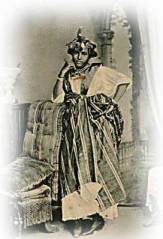Introduction
Welcome to CreoleLinks.com and Barbados genealogy, a template for researching Caribbean genealogy. You will find here tips for doing research in a slave society where names are not always what they seem. It is a world of parallel families where siblings from different mothers carry the same first names and sometimes the legitimate branch becomes unrecognisable while the extraneous branch becomes prominent.
DEFINITION OF CREOLE
The word ‘creole’ has its origin in the Portuguese word ‘crioullo’ which meant a ‘home-born slave’. This usage is found on the slave registers of those British islands which were once French or Spanish possessions. In Barbados, home-born slaves were simply called Barbadians. In course of time, the description spread to the mixed dialect of African and European languages otherwise known as patois.
The term is also used to describe the descendants of French settlers in the southern states of North America.
CHRISTIAN SERVANTS
These fall into three categories of forced labour which included war captives offshoots of the Dutch, French wars, Cromwell’s war against the Irish and Scotch-Irish civil wars and captured European mercenaries; the offspring of Native American and African captives and voluntary indentured labour from England, Ireland and Scotland..
MEMORIAL OF THE MANUMITTED
Some of the names listed can be found in Barbados Baptisms, Burials, Wills, Powers and Deeds and other documents in the public domain which are lodged at the Barbados Department of Archives. Several of the original Wills and Recopied Deeds which were available to the public 5 years ago may not be seen again unless some drastic effort is made by the society at large to have these valuable items digitised for the public.
The Census of 1715 purports to be one of the white inhabitants so that the persons charged with that responsibility in the parish of St. Philip scrupulously brought to light issues of phenotype wherein persons who were of African descent were baptised without classification. They also excluded from the Census those who could not be deemed to be of European origin.
The classification of persons as negro, black, mulatto or coloured, enslaved or free, was a requirement for all documents. Slave lists seldom show Native Americans but rather colour divisions of negroes and mulattoes. On a few Wills there are references to mestees/mestizos.
Among the free coloured there seem to be subtle gradations such as free mulatto, free coloured and free person of colour which I have not listed.
Barbados genealogists over the years have left Notebooks in which one will find extracts from original and copied wills and these are indexed at the BDA. However, not much effort was made to record the names of household slaves in those wills.
Always bear in mind that slave children were given the same names as their master’s children from his wife which can result in mistaken identity.
Reference to the slave baptisms recorded in Sanders Barbados Records will give an indication of persons who were being considered for manumission and who often carried the surname of the slave owner. Depending upon the patriarch’s largesse, the fortunate would later be referred to as “son or daughter of Mr. So and So” without reference to the slave mother.
SLAVES WITH SURNAMES
For those searching for non-baptised slave ancestors they may find them under the Slave Registers held by ancestry.com. which cover the early 19th century up to Emancipation or you might find them under the above caption which was taken from sundry Wills.
ANCIENT LINKS
People who come to this website are interested in Genealogy with reference to the Island of Barbados and the Caribbean in general. Once their search is exhausted, the question next in mind is ‘Where did the ancestors originate?’ DNA tests will give a partial answer and some will expand it to render an hypothesis of Evolution from apes and trees as expressed by a seer named Thoth who was followed by several avatars who added to his Thoughts which some of this persuasion claim as ancient wisdom derived from Enki, an abbreviated form of Enok/Enoch whose antiquity can be traced. in the Torah as the son of Cain, son of Adam.
Others declare that their science was derived from Monads, alien beings who live in outer space. On the other hand, the Torah records the beginning of six thousand years of written history and the Creation of Man in linear time rather than in cyclical time. It also records man’s first encounter with the spirit world of rebel angels led by an archangel manifesting in the image of a snake which is later revealed as a dragon in the Revelations of Jesus Christ.
Theology begins with Intelligence that creates the sun and moon as the keepers of time while Theosophy deals in cycles and life which emerges from vapour through stages of development that are weighed in units of billions and then in its fourth cycle Man appears and his stay is calculated according to planetary positions. Therefore, it is necessary to place these opposing views in the open so that the reader can decide where he or she fits.
Time and the calculation of time is therefore of the essence in separating TRUTH from THOUGHT. To this end I will set out a comparison of written works under two sections: Time Counts; Theology vs. Theosophy and the Genealogy of Man. Just click on the underlined links.

Contents